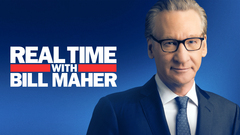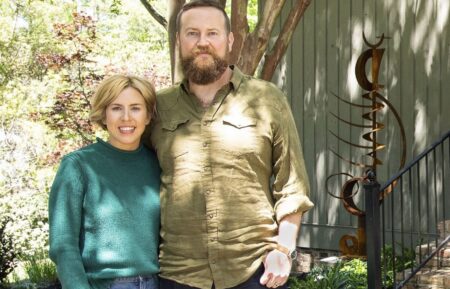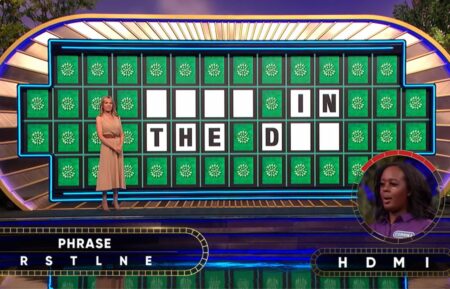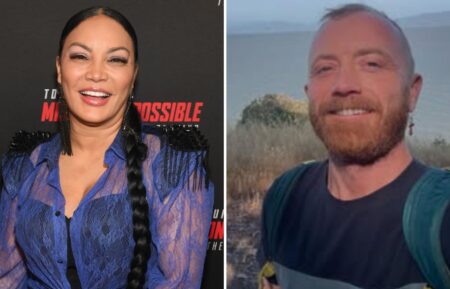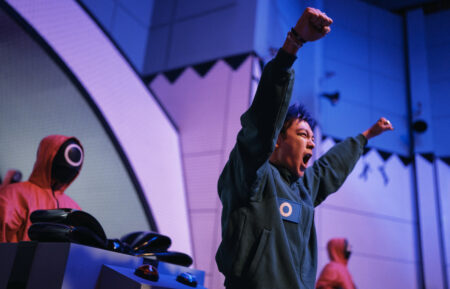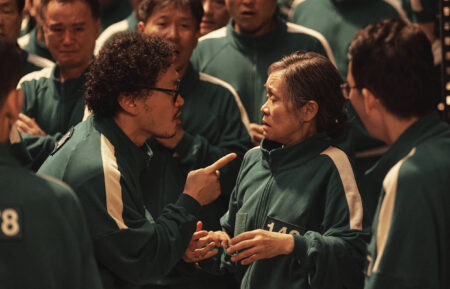Bill Maher: ‘I’m Not Dirty. It’s a Dirty World.’
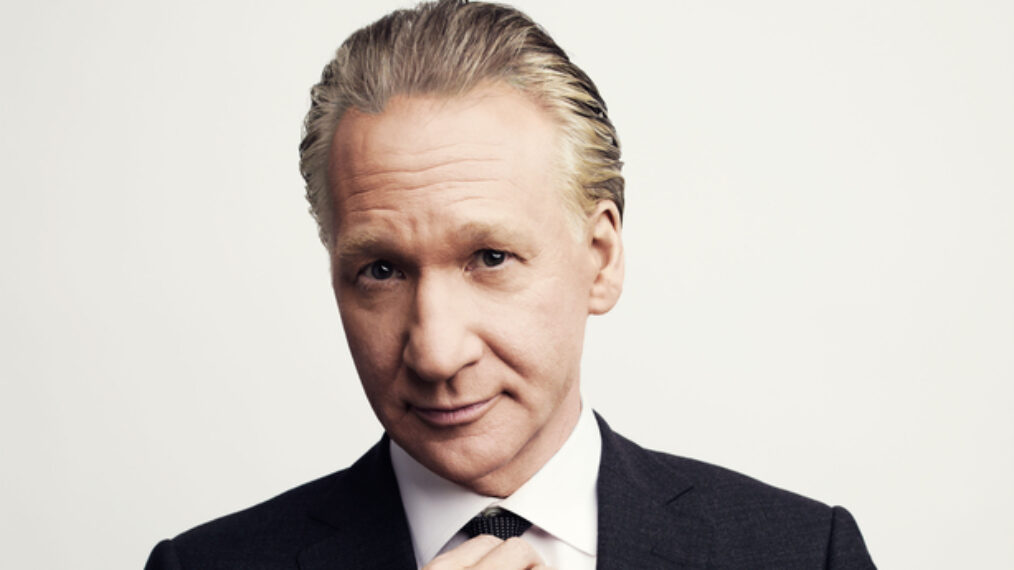
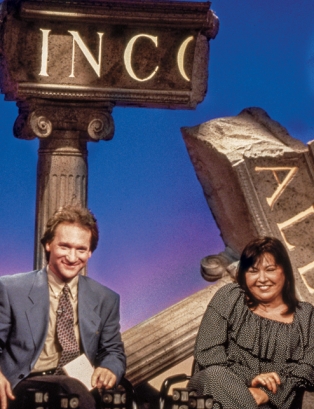
Somewhere along the line, Bill Maher became, for many, America’s conscience–slowly, unconsciously, and, appropriately for a conscience, often uncomfortably. Around the time that political correctness became widespread in the early 1990s, in the humid swamp of America’s intellectual laziness, Maher came to define the liberating, opposite sensibility with his regularly controversial Politically Incorrect, which launched on Comedy Central in 1993 before migrating to ABC in 1997. For the next five years, it was one of TV’s top talk shows, as its nightly panel of celebrities, politicians, and generally smart and sometimes just smartass people (including me, when I was editor in chief of SPIN, a magazine I founded in 1985) debated the issues of the day. In June 2002, ABC canceled the show when sponsors dropped out after Maher said of the terrorists who attacked the World Trade Center, “Staying in the airplane when it hits the building–say what you want about it–not cowardly.” Less than a year later, he resurfaced on HBO with the weekly Real Time With Bill Maher.
Maher was born in New York in 1956 to a Jewish mother and an Irish Catholic father, which might go some of the way to explaining his strident atheism. He’s a passionate animal-rights activist and an equally determined bachelor, and he’s currently a third of the way through his 13th season of Real Time.
Guccione: When you started doing stand-up 35 years ago, did you think that one day you’d be one of the biggest TV stars in America?
Maher: I don’t know if I’m one of the biggest, but I’m one [of those who have] lasted the longest. One of the big secrets about our show is that it has almost 4 million viewers a week, which is a lot more than some primetime shows and more than the other comedy news shows get. So I’m proud of that and that between Politically Incorrect and Real Time I’ve been on TV for 22 years.
Guccione: What do you make of the Brian Williams scandal?
Maher: We did a piece on it at the end of our show [in mid-February], and the point I made was that Brian Williams shouldn’t have to go away because he lied. He should have to go away because nightly news sucks. I wondered if the audience was going to be like, “Oh, Bill, how could you be that harsh?” [but] they burst into applause.
The nightly newscasts are committing journalistic malpractice. They are pretending that they are giving the people news, and they’re not. It’s about three to five minutes of news at the beginning, unless it’s snowing somewhere on the East Coast and then all of life shuts down for them to talk about the snowstorm, which is never even really a story. Maybe it’s a story for the Weather Channel, but how did the weather become a topic for the nightly news, unless it’s killing people, which it almost never is? Then they go right to some bulls–t story on “news you can use” or paying it forward or–I don’t know–a medical segment, which is very often on obesity so they can show endless footage of fat people walking in the park.
And they’re certainly never going to challenge conventional medicine, because the program is sponsored by pharmaceutical [companies]. Then the last segment is some human-interest nonsense about a paraplegic ice climber scaling a mountain or the athlete who won the big game to honor his deaf brother or the black veteran who’s blind but still drives the school bus. Last year, NBC only did 25 minutes the whole year on global warming. They love to cover the weather, but they haven’t linked it to climate change, which is the biggest issue of our time. ABC News only did 13 minutes on climate change.
Whether Brian Williams lied or not, I don’t really care. What I care about is that people are not getting the news.
Guccione: We love to be sanctimonious when someone has an epic fail publicly.
Maher: Especially when we have social media to point fingers anonymously. There is so much smug self-righteousness–and it’s just choking this country. I think that’s one reason why our audience continues to grow. Look, I’ve changed the title, but the program is still ultimately politically incorrect. And there’s a thirst for that.
Guccione: You’ve taken a lot of heat for being perceived as an anti-vaxxer. What’s your position on that?
Maher: First of all, it’s just so annoying that I have to constantly make the case that I’m not an anti-vaxxer. I just have some issues and questions, and people are just insane about this issue. Talk about trying to root out the impure. Anyone who asks any sort of question is somehow anti-science. It’s actually anti-science to never ask a question.
What I said on my show was the week that the measles was going around felt like the first week of the Iraq War–if you questioned it at all, you were somehow unpatriotic.
Guccione: It is ironic how, to a degree, science has become the new inquisition. It is positioned as heresy to question its conclusions, as in the case with climate change skeptics.
Maher: Right. You seem to be equating it, but this doesn’t deserve to be equated. The science about climate change is very straightforward and not that complicated, because we’re dealing with a planet as opposed to the very mysterious human body. Climate scientists have not really changed their views on what’s happening–because basically it’s chemical science. The human body is just much more complex. They’re pummeling us that vaccines work, and in many instances they are a godsend, but I’m not a crazy person to ask if we may be overdoing it, whether we are doing a disservice by never letting the human body exercise its immune system naturally.
Guccione: It seems like we spend more time talking about Bill Cosby than the Middle East or the morality of the wars we prosecute. Cosby is wall-to-wall and everybody has an opinion. How did we get here?
Maher: It’s such a long, slow descent. That people are less and less educated doesn’t help, nor that parents are ever more indulgent. When I was a kid, you could never drive a wedge between the parents and the teacher. The parent always took the side of the teacher, so you couldn’t get away with anything. Now it’s the opposite: Parents take the side of the kid and teachers are scared. Kids should be scared of teachers. God forbid they get a C because they don’t apply themselves; the parents will throw a fit.
Politicians can say anything, because the people don’t know anything. Ted Cruz, for example, said, when asked about ISIS, “If I was president, I’d take them out.” What the hell does that say? He’s going to drop a nuclear bomb on them? What would you do that Obama’s not already doing?
Guccione: How do we suffer as a society for this?
Maher: It comes out in the electoral process. People make bad decisions. Take immigration to America from Mexico: For the last five to seven years, it has been net zero, which means they’re not coming anymore. But if you watch Fox News all day, you would never know that. They want to invest millions of dollars building walls and fences on the border, when the truth is that most illegal immigrants get here by taking a plane, getting a cab at the airport, and just never leaving. It’s so much easier than going through the desert.
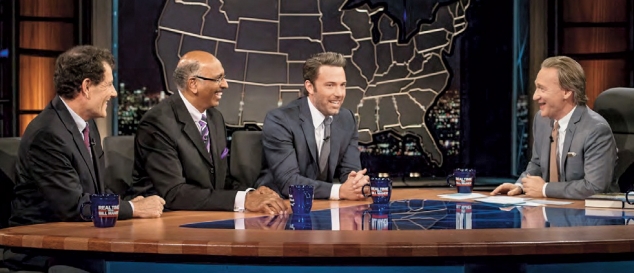
Guccione: You’ve been a sane voice on Islamic extremism. The vocal politically correct minority–and I put Ben Affleck in that group–grandstand that you are saying all Muslims are terrorists. Why is it so hard for many people to be honest about this issue?
Maher: I’m a very proud liberal, but I tell liberals when I think they’re wrong. Anytime I do any kind of joke about Islam or Muslims, it’s just a groan in the audience, because–my analysis of it–they [see] Muslims as a minority, and in the liberal canon, we can never make fun of a minority, even though everybody should be able to be made fun of. That’s how we know we’re equal. In the last six months, I have found that at least half the audience is now on my side, because I keep challenging them by saying, “If you don’t agree with the idea that free speech is better than a lack of free speech, that rule of law is better than theocracy, that we should have absolute equality for women, separation of church and state, freedom to practice any religion or none without the threat of violence or to leave a religion or draw a cartoon without the threat of violence or elope with who you want to elope with without the threat of violence, then you’re not a liberal.” It’s not my fault that the people who violate all these rules are more often than not from the Muslim part of the world. Not every Muslim. Of course I’m not saying all Muslims are terrorists.
Guccione: What inspired your passion for politics and activism?
Maher: It’s the household I grew up in. My father was a radio newsman in the days when every radio station had news at the top of the hour. So I heard my parents talking about politics from the earliest I can remember.
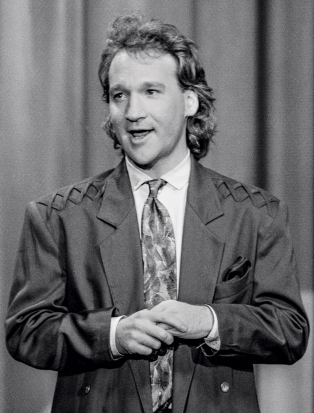
Guccione: Did your comedy start out political or did you start out working blue?
Maher: Well, I still work blue. It’s not pointlessly blue. I always say, “I’m not dirty. It’s a dirty world. I’m just describing it.” When I was starting out, I did do a lot of political material. It’s just that when you’re 23 years old, you have absolutely no credibility with the audience because you’re too young.
Guccione: Is comedy the ultimate form of freedom of expression?
Maher: It certainly is for me. The very last bastion of free speech is live stand-up comedy, because some things I would say there that I would never say on HBO. The audience that comes to see a live show wants me to be as far out on the edge as possible. HBO is a pretty damn great place to be because there are no sponsors that can threaten to pull out. Comedy and satire are often a way to get at the truth [in a way] that nothing else can.
Guccione: What makes the perfect guest, and who have you not had that you most want?
Maher: The perfect guest is someone who’s brilliant and witty, someone you’d want to have drinks with on a big news day. There are lots of people who I’d love to get on. Obama–he’s probably at the top of my list.
Guccione: Who is your favorite guest?
Maher: I hate to say that, because then the other guests will be offended, but if you’re putting a gun to my head, I’d probably say Salman Rushdie.
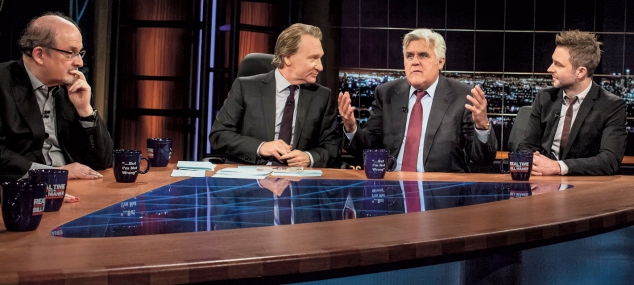
Guccione: When do you think was the golden age of television?
Maher: A lot of people are saying it’s now, because there is more compelling drama on television than ever before. I happen to be a TV lover. I grew up with it. I can’t go to bed without it. My friend, a TV writer, said, “When I started in TV, you’d look in TV Guide Magazine and see what it was on against, because you were up against two, three other shows. Now your show is against everything that was ever made.”
Guccione: What are the three greatest TV shows ever?
Maher: Real Time With Bill Maher. Politically Incorrect With Bill Maher. And of course, F Troop.
Guccione: Right. Excluding your shows, putting those out of the way–
Maher: I would say The Dick Van Dyke Show. It was the most sophisticated sitcom ever. Why can’t I say my shows?
Guccione: You can. I’m going to let you.
Maher: Do you know how many Emmys I’ve been nominated for? Thirty-four, and they’ve never given one to me. As long as I can win something here in your poll, I’m going to vote for myself.
Guccione: OK, final question: When you get married, will it be in a church?
Maher: [Laughs] Are we playing Alternative Reality here, Bob?
Real Time with Bill Maher, Fridays, 10/9c, HBO
From TV Guide Magazine
How 'Countdown' Recruited Jensen Ackles to Go Full 'Die Hard'
Countdown boss Derek Haas talks creating the character around Ackles, and the cast teases the “Avengers”-like team of the crime thriller. Read the story now on TV Insider.
